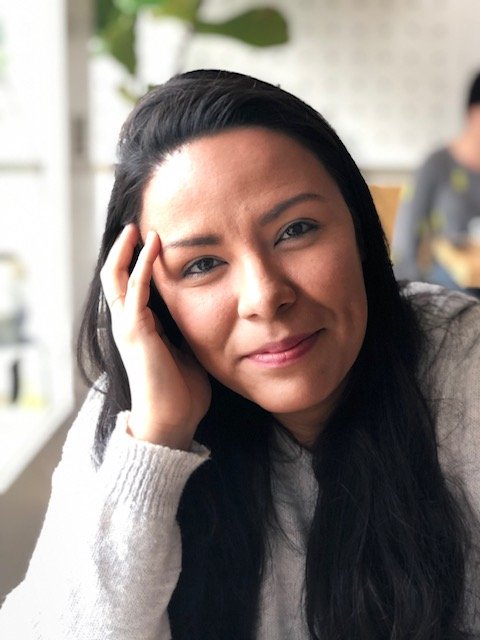
Activism and Mental Health: Why Is Activism Important
Activism as a Healing Path for Trauma Survivors. Activism is a powerful avenue for mental health and trauma healing and transformation, particularly for trauma survivors seeking to channel their experiences into positive change. It is crucial for survivors to approach activism and mental health with self-compassion, awareness, and a deep understanding of their triggers.

Coping with the Holidays: Skills and Self Care for Trauma Survivors
Togetherness can be fun, joyful, and fulfilling for many people. Yet, for many others, the idea of coming together with certain friends and family can be triggering, isolating, distressing, and anxiety-provoking.
Below, I have outlined core skills to use whenever we think our sensitivity is high.
Radical Acceptance
Mindfulness
Self and Sensory Soothing
Boundaries with people, time, and content.

PTSD Triggers Years Later: What To Do When You Are Triggered
PTSD Triggers Years Later: what to do when you are triggered
Navigating the aftermath of trauma is a tricky journey that often resembles a winding road, filled with unexpected turns and occasional setbacks. PTSD triggers years later can still cause us to have trouble in our life and experience an uptick in trauma symptoms. Many of us struggle with what to do when you are triggered.

Evidence-based trauma treatment: How Radical Acceptance works
In Dialectical Behavior Therapy, radical acceptance shows up as a concrete coping skill, a way of dealing with intensely distressing situations. In DBT, we acknowledge that there are moments when we can be in high distress about something that we cannot change. A skill for radical acceptance can be around accepting the truth, moving out of this distress and angst around forcing something that will not change. When we finally accept the situation, the distress tends to fall into grief, the sadness we may have been trying to avoid. The opposition to change, or acceptance, was really about preventing the grief. This realization can often bring our distress down, and we learn how to cope. Acceptance and change are in a dynamic yet creative relationship with each other. By accepting the relationship is over and the change I was hoping for is not possible, I can now move to make changes that are in my power. It stops me from going to a place of intense shame or sadness where I can now find peace and comfort.

Understanding Someone with BPD: Complex Trauma and PTSD
BPD, PTSD, and Complex PTSD are complex mental health conditions that are deeply intertwined with experiences of trauma. As we know, trauma—whether it be from childhood abuse, neglect, or other distressing events—can have a profound impact on an individual's psychological well-being.

Internalized Gaslighting
Internalized gaslighting is essentially when we’ve been gaslit so much (by the world, our community, rape culture, an abuser) that our mindset has shifted, and we begin doing it to ourselves. Our automatic thoughts end up being ones that question our sanity or sense of reality. Gaslighting is a transactional process in a relationship where, by means of psychological manipulation, someone is deliberately and consciously trying to make another person question their sense of reality or their sanity. This tactic is something we commonly see in abusive relationships, and it is considered to be a method of psychological abuse.

What is trauma? Signs and symptoms of PTSD
PTSD stands for Post Traumatic Stress Disorder and is defined by both incident AND impact. Mental health professionals think of trauma and PTSD as being a psychological injury in the sense that an outside event has occurred, and it has caused a shift in the way our brain perceives the world and physiologically activates or deactivates certain things in the body.

Trauma Defined: How Do I Know If I Have Trauma?
When defining trauma, psychologists get more specific by separating experiences into three categories:
Trauma exposure
Trauma response
Ongoing trauma symptoms
When people think about trauma, a variety of explanations come to mind. Part of the reason there are so many different definitions of trauma - and part of the reason I do this podcast - is because society has generalized this word to the point where it is now unclear and all-encompassing.

Nurturing Trauma Through Community
Connecting to the community can not only help us recover but help us thrive and work to change our culture as a whole into a space where rape and rape culture no longer exists. My incredible guest today is Olivia Pepper. They are a star poet, a practicing mystic and ritualist, a community organizer, and a fellow survivor. It is my personal suspicion that they are also secretly a super-gifted healer for our community. Part of what makes this so beautiful is how this is what it feels like it’s supposed to be. We’re supposed to have community surround us, but there’s a shame that survivors have internalized. Survivors are seen as burdens, and we carry this shame of being othered by society. This idea that we’re not supposed to bother people and intrude on anyone’s lives plagues us. To hear that nature intended for us to be centered and have love, community, and care wrapped around us is inspiring. Being in the center feels almost like we’re the most valued rather than the ones cast out. Instead of saying, “You’re ruining this for the rest of us. We’re going to let you go,” we say, “You’re so important. Let’s layer community members around you to keep you safe and well.”

Trauma Informed Community: Group Therapy for Trauma Survivors
Trauma Informed Community: Group Therapy for Trauma Survivors. Trauma informed community is vital for supporting survivors in trauma healing. Group therapy for trauma survivors can be a safe and helpful way to connect to community and continue to work toward trauma healing.

Borderline Personality Disorder (BPD) and Trauma
Many people with Borderline Personality Disorder (BPD) and trauma struggle to find good therapy, and therapists who are effective to work with. While it is very possible to treat Borderline Personality Disorder (BPD) and trauma and offer people tremendous relief, that can be hard to find. In this post, I discuss Borderline Personality Disorder (BPD) and trauma, and how the two are linked and how to find helpful therapy.

Assumptions About Survivors with Sarahi Gutierrez
In this blog post, I’m talking with my colleague and good friend, Sarahi Gutierrez, about the 10 Assumptions of Survivors. I personally consider Sarahi quite the expert in DBT. She is so masterful at engaging in this intervention, so I wanted to get her insight into how these assumptions can shape how we engage with survivors in the world and in the community, how we can engage with ourselves, and why these are so important.

Therapy, Trauma, and Our Therapist Friends - Interview with Kelsey Harper, Psy.D.
Dr. KELSEY HARPER, Psy.D., is a practicing psychologist, writer, podcaster, and sexual assault survivor with a background in community work and activism. Her unique path to psychology, profound lived experiences, and inherent creativity have given her a vast perspective and razor-sharp discernment when it comes to treating her clients.

10 Assumptions About Survivors
These are assumptions (or beliefs) that we should make an active choice to ascribe to as a way of interacting with survivors that’s actually helpful and effective and truly sees survivorship for what it is. Understanding that survivorship is a very unique experience and the transactions that survivors have with the outside world significantly influence their recovery is crucial. When the environment can hold beliefs about survivors that are more accurate, effective, and true to their experience, we can be more effective at helping survivors, dismantling rape culture, and ending sexual violence altogether.

I Believe Survivors
This is one of the more notable core values that I hold as a survivor and someone who works with other survivors. It is one of the first podcast episodes I published back in 2021 that I still believe to be an important topic of discussion. This is why I believe all survivors.

DBT Trauma Therapy
DBT Trauma Therapy (aka Trauma Focused DBT) and how we apply DBT to trauma and trauma recovery
There are two main topics that I want to touch on in this conversation:
1. What is a skillful approach to trauma recovery using DBT skills?
2. What is DBT prolonged exposure (DBT PE)? How is it applied? How is it functional?

Skills for Trauma Survivors: Dialectical Behavior Therapy (DBT)
Today we are diving into Dialectical Behavior Therapy, or DBT! Skills for trauma survivors can help calm distress right now. DBT is a very helpful therapy for trauma survivors. Read more to learn about the history of DBT, how DBT works for trauma survivors, and how to find a DBT therapist.

3 Stages of Trauma Recovery (part two)
Three stages of trauma recovery are what we generally see in any recovery process from an observational standpoint. Whether intentional or unintentional, we find that these stages are consistent and best facilitate a process of moving from victim to survivor or from surviving to THRIVING!
The three stages of trauma recovery include:
Establishing safety
Remembrance and mourning
Integration and reconnection

The Will to Survive with Georgia Durante
Georgia Durante. This incredible individual is a former stunt woman and model, business owner, mother, survivor, and so much more. Georgia has such a compelling story that needs to be heard. I sat with her as she talked about her account, explained some of the things she learned throughout her journey, and shared her perspective on how she survived multiple traumas.

3 Stages of Trauma Recovery
3 Stages of Trauma Recovery. Let’s dissect the 3 stages of trauma recovery, what trauma recovery may look like, and specific theories around these stages. Ultimately, when talking about recovery stages or theories, we have this idea of moving from one stage to another consecutively. These 3 stages of trauma recovery don’t operate entirely linearly.


